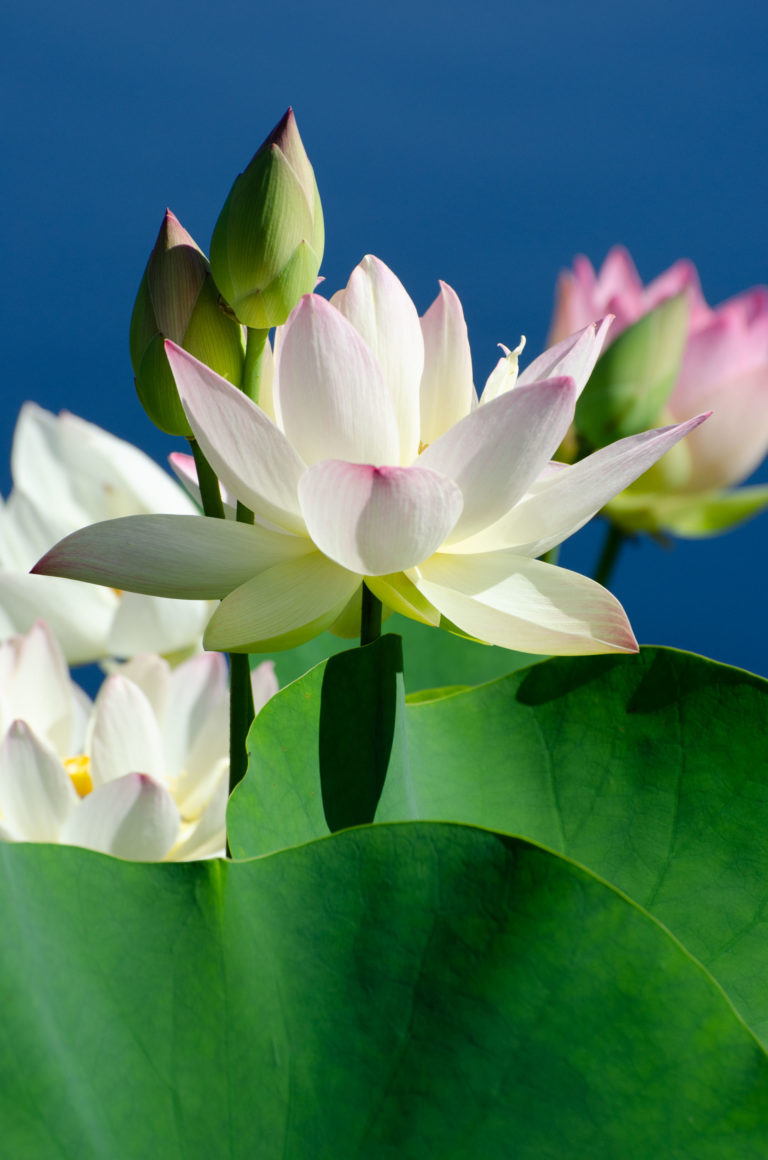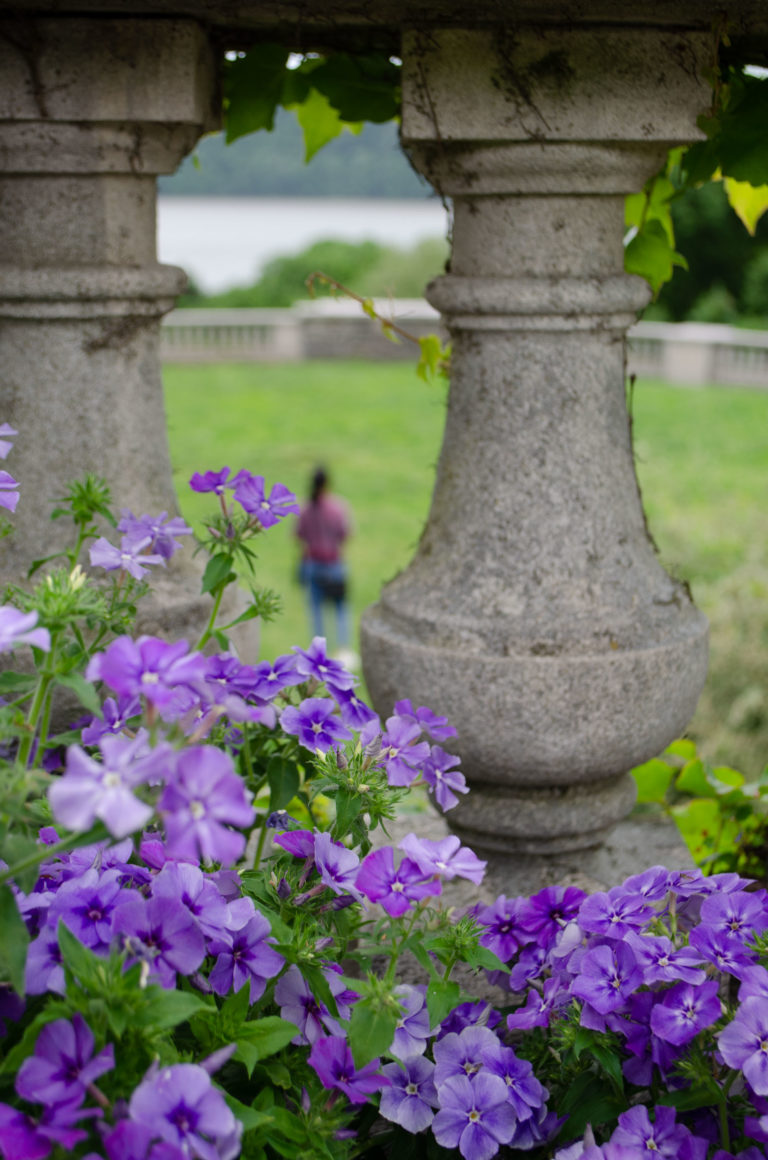
Nymphaea 'Marliacea Chromatella' (Water Lily Cultivar)
September 10, 2020Claude Monet’s passion for painting water lilies was the direct result of the horticultural efforts of another Frenchman, Joseph Bory Latour-Marliac.
Until the late 19th century all species of hardy water lily—those that are native to temperate climates with cool winters—were resolutely white-flowered. Latour-Marliac discovered a way of hybridizing them and was able to produce a range of plants which would bloom in other colors.
His first success was ‘Marliacea Chromatella’, a yellow-flowered cultivar (cultivated variety) which he introduced in 1887. We have this same cultivar today in our Aquatic Garden. It can be seen blooming there over several weeks in late summer into fall. In this next shot, taken in 2018, it’s tucked into the left foreground of the pool.

This morning, after rainfall, one bud is close to opening amongst glistening leaves.

And again, just a few hours later, its heart bursting with color.

Latour-Marliac exhibited his dazzling new water lilies at the 1889 World’s Fair in Paris, and they captured the attention of the thousands of visitors. One visitor was Claude Monet and he very soon created his own water garden and bought plants from the Latour-Marliac nursery. He spent much of the rest of his life painting them.

Latour-Marliac’s nursery still operates and is located in southwest France.
The work of Wave Hill’s now retired Ruth Rea Howell Senior Horticultural Interpreter Charles Day, this post dates back two years to September 6, 2018. Charlie’s writing has a perennial quality, and we are delighted to be able to showcase his knowledge this fall with some new photos.



